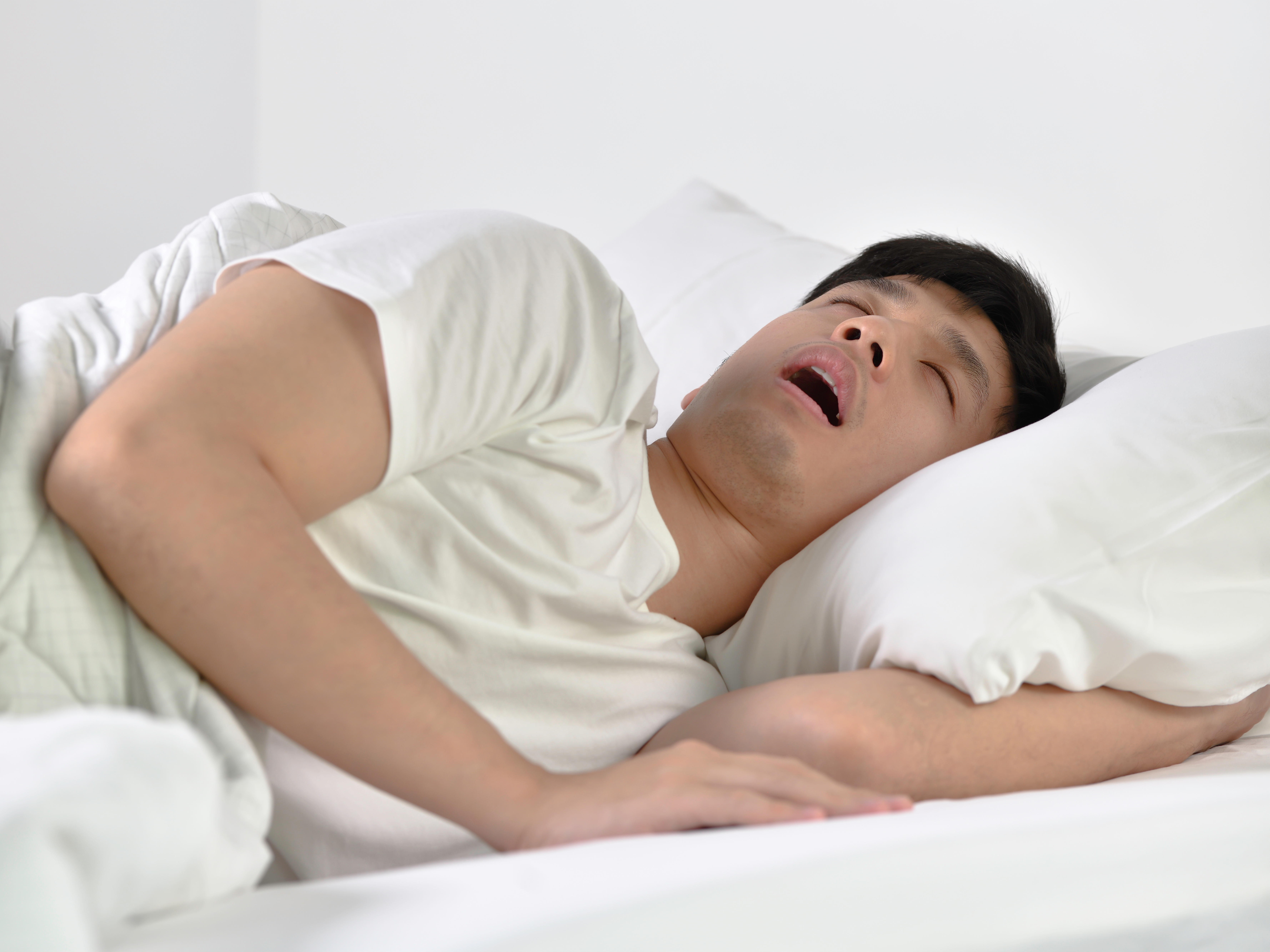Who Snores?

Do you suspect you have a sleep disorder?
If you come to our office concerned that you might have a sleep disorder, the first thing we do is ask when you noticed these sleep issues. It's important to understand whether the symptoms have been a long-standing issue or if they're just now being recognized.
The basics of snoring...
Snoring can happen to anyone, though it's more common in men and those who are overweight. It also tends to get worse as we age.
If you only snore occasionally, it's generally not a big deal. However, if you're someone who snores regularly, your own sleep quality takes a hit. Habitual snorers often need medical help to ensure they can enjoy a good night's sleep.
What causes snoring?
Snoring happens when something blocks the flow of air through your mouth and nose. This can be due to a variety of factors:
Blocked nasal airways: Some people find they snore during allergy season or if they have a sinus infection. Physical irregularities like a deviated septum, where the wall dividing the nostrils is misaligned, or nasal polyps can also block the airway.
Weak muscle tone in the throat and tongue: Sometimes, the muscles in the throat and tongue are too relaxed, causing them to collapse and block the airway. This can happen during deep sleep, after drinking alcohol, or from using certain sleeping pills. As we age, these muscles naturally relax more.
Bulky throat tissue: Being overweight can lead to thickened throat tissue, which contributes to snoring. Children with large tonsils and adenoids also often snore.
A long soft palate or uvula: If the soft palate or the uvula (the tissue that hangs at the back of the throat) is elongated, it can narrow the passage from the nose to the throat. When these structures vibrate and bump into each other, they can block the airway and cause snoring.
Oral and dental devices can treat snoring and sleep apnea.
Snoring is a key indicator of sleep apnea, a condition that's surprisingly tricky to diagnose. When you snore, it's because the relaxed tissues in your throat vibrate as you breathe in. Sleep apnea, however, is a serious condition that needs prompt attention. That's why dental professionals work to determine if snoring might be a sign of sleep apnea as soon as possible.
Oral appliances can be used to treat snoring. They’re small plastic devices you wear in your mouth that help keep the tongue and soft tissues in the back of your throat from collapsing, ensuring the airway stays open while you sleep and allowing proper air flow. Oral appliance therapy involves diagnosing the issue in our office, choosing the right appliance, fitting it properly, and using it during sleep to maintain an open, unobstructed airway in the throat.
Snoring does not always indicate sleep apnea.
Excessive snoring can lead to a range of issues like sleep disturbances, problems in relationships, and waking up frequently. However, snoring isn't always a sign of obstructive sleep apnea (OSA).
To figure out if snoring is linked to OSA, look for these symptoms:
- Pauses in breathing while snoring
- Choking or gasping following these pauses
- Struggling with sleepiness during the day, at work, or while driving
- Falling asleep quickly when you're inactive
- Waking up with headaches in the morning
- Feeling irritable
- Experiencing depression
- Changes in your mood or personality
- Waking up with a sore throat or dry mouth
- Needing to urinate frequently at night
- Episodes where breathing stops
- Having trouble paying attention
- Difficulty staying asleep
- A decrease in libido
Health risks associated with Snoring...
Habitual snorers are at risk for some serious health issues, including obstructive sleep apnea. This condition can lead to several problems:
Breathing interruptions during sleep, which can last from a few seconds to minutes due to partial or complete blockage of the airway.
Frequent awakenings, often without even realizing it.
Light sleeping. Constant waking up throughout the night disrupts the normal sleep cycle, leading to more time spent in light sleep rather than the restorative, deeper stages of sleep.
Heart strain. Long-term obstructive sleep apnea can cause higher blood pressure and potentially enlarge the heart, increasing the risk of heart attacks and strokes.
A poor night's sleep, which results in drowsiness during the day, affects your overall quality of life, and heightens the risk of car accidents.
If your child snores...
It's pretty common for kids to snore occasionally, especially when they have a cold or allergies. However, if your child is snoring loudly most nights, it could indicate an infection in their sinuses, throat, lungs, or airways, or it might even be a sign of sleep apnea. If this is the case, it's a good idea to discuss it with your child's pediatrician.
Contact Us
(405) 321-8030
Monday 8A-4P
Tuesday 8A-4P
Wednesday 8A-4P
Thursday 8A-4P
Friday 8A-12P
(Business Office Only)